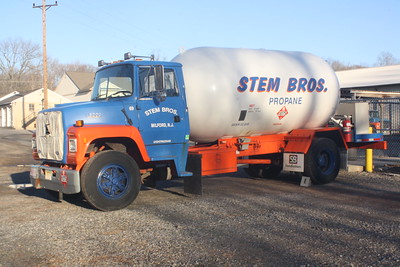
Soil health is a critical component of sustainable agriculture. Healthy soil is essential for providing the nutrients necessary for plant growth, regulating water flow and retention, and supporting the diverse range of microorganisms that keep ecosystems functioning. In recent years, researchers have started to explore the impact of different agricultural practices on soil health, including the use of propane as a fuel source. While propane is widely used in agriculture for various purposes, including heating and fueling engines, the impact of propane on soil health is not well understood.
Propane is a colorless, odorless gas that is derived from the processing of natural gas and crude oil. It is commonly used as a fuel source for heating, cooking, and powering vehicles, but it also has a variety of applications in agriculture. For example, propane is used to fuel irrigation pumps, grain dryers, and other equipment, and it can be used to heat greenhouses and livestock barns.
Despite its widespread use, there is limited research on the impact of propane on soil health. However, the available studies suggest that propane can have both positive and negative effects on soil health, depending on various factors.
Impact of Propane on Soil Microorganisms
Soil microorganisms play a critical role in maintaining soil health. They are responsible for breaking down organic matter, releasing nutrients into the soil, and supporting plant growth. Some studies suggest that propane can have a negative impact on soil microorganisms, particularly those that are involved in the nitrogen cycle.
One study published in the Journal of Environmental Quality found that propane-fueled grain dryers caused a reduction in soil nitrogen-fixing bacteria. These bacteria are responsible for converting atmospheric nitrogen into a form that plants can use, and their decline can lead to reduced plant growth and lower crop yields.
Another study published in the journal Soil Science Society of America found that propane application had no significant effect on soil microbial biomass, but did have a negative impact on soil enzymatic activity. Enzymes are produced by microorganisms and play a critical role in the breakdown of organic matter in the soil. The decline in enzymatic activity observed in this study suggests that propane may have a negative impact on soil organic matter decomposition.
However, it is important to note that the impact of propane on soil microorganisms is complex and context-dependent. Factors such as soil type, climate, and application rate can all influence the effect of propane on soil microorganisms. Additionally, propane may have a positive impact on some microorganisms, such as those involved in the breakdown of hydrocarbons in contaminated soils.
Effects of Propane on Soil Physical Properties
In addition to impacting soil microorganisms, propane can also have an effect on soil physical properties. One of the primary concerns is the potential for soil compaction. Soil compaction occurs when soil particles are pressed together, reducing pore space and making it difficult for plant roots to penetrate the soil. This can lead to reduced water infiltration and increased runoff, as well as decreased crop yields.
Some studies suggest that propane can cause soil compaction. For example, a study published in the Journal of Environmental Quality found that the use of propane-fueled grain dryers caused a significant increase in soil bulk density. This increase in soil density is likely due to the weight of the dryer itself, as well as the movement of heavy equipment over the soil during harvest.
However, other studies have found no significant impact of propane on soil physical properties. For example, a study published in the journal Communications in Soil Science and Plant Analysis found that propane application had no significant effect on soil bulk density or porosity.
Influence of propane on nutrient availability and uptake
Propane can have a direct impact on soil nutrient availability and uptake by plants. For example, the use of propane to fuel irrigation pumps can increase soil moisture, which can enhance nutrient uptake by plants. However, the impact of propane on nutrient availability and uptake is complex and depends on a variety of factors.
One way that propane can influence nutrient availability is through its impact on soil pH. Propane combustion releases carbon dioxide (CO2), which can combine with water in the soil to form carbonic acid. This acidification can lower soil pH, which can have a negative impact on nutrient availability. For example, some nutrients, such as phosphorus, become less available in acidic soils. However, the impact of propane on soil pH is likely to be small and short-lived.
Another way that propane can influence nutrient availability is through its impact on soil organic matter. Soil organic matter is a critical component of soil fertility, as it provides nutrients and supports soil structure and water retention. Propane combustion can contribute to the loss of soil organic matter by accelerating the breakdown of organic matter in the soil. This can reduce nutrient availability and soil fertility over time.
However, the impact of propane on soil organic matter is likely to be small compared to other factors, such as tillage and crop rotation. Additionally, the impact of propane on soil organic matter may be mitigated by its potential to reduce soil erosion. For example, propane-fueled grain dryers can reduce the need for tillage by allowing crops to be harvested earlier, which can reduce soil erosion and preserve soil organic matter.
Finally, propane can influence nutrient availability and uptake indirectly, through its impact on plant growth and development. For example, propane-fueled greenhouse heaters can enhance plant growth by providing consistent, controlled heat, which can increase photosynthesis and nutrient uptake. Additionally, propane can be used to fuel engines that power equipment used for precision agriculture, such as GPS-guided tractors and drones. This technology can enhance nutrient management by allowing for precise placement of fertilizer and other inputs.
Research studies on the impact of propane on soil health
Existing studies on the impact of propane on soil health are limited. However, some studies have been conducted to assess the effects of propane on soil properties and plant growth.
One study published in the Journal of Environmental Science and Health found that propane combustion produced lower levels of carbon monoxide, nitrogen oxides, and sulfur dioxide emissions compared to gasoline and diesel fuel combustion. The study also found that propane combustion did not significantly affect soil pH, electrical conductivity, or organic matter content.
Another study published in the Journal of Environmental Quality evaluated the effects of propane and gasoline fuels on soil properties and crop yield. The results showed that propane combustion did not significantly affect soil properties such as pH, electrical conductivity, and organic matter content, nor did it significantly affect crop yield.
Despite the limited research on the impact of propane on soil health, there are still gaps in current knowledge and research needs. For example, more research is needed to evaluate the long-term effects of propane on soil properties and plant growth. Additionally, more research is needed to compare the effects of propane combustion with other types of fuel combustion, such as biofuels or electric power, on soil health. Further research is also necessary to investigate the potential effects of propane leaks and spills on soil health.
Environmental implications of propane use in agriculture
While propane is considered a relatively clean burning fuel, its use in agriculture can have environmental implications.
Air Quality:
Propane combustion produces lower levels of greenhouse gases and air pollutants than other fossil fuels, such as coal or diesel. However, the combustion of propane still produces carbon dioxide and nitrogen oxides, which contribute to air pollution and climate change. Propane-powered equipment should be properly maintained to minimize emissions.
Water Quality:
The use of propane in agriculture can also have implications for water quality. Propane is often used for crop drying, which can produce wastewater containing chemicals and contaminants that can impact water quality. Proper disposal of this wastewater is crucial to prevent contamination of groundwater and surface water sources.
Comparison with other fuel sources:
Compared to other fuel sources commonly used in agriculture, such as diesel and gasoline, propane has several advantages. Propane combustion produces lower emissions of air pollutants and greenhouse gases than diesel and gasoline. Propane is also less flammable and explosive than gasoline, which can reduce safety risks.
However, propane has some disadvantages compared to other fuel sources. For example, propane has a lower energy density than diesel or gasoline, which can result in reduced power output and efficiency. Propane also requires special storage and handling equipment, which can add to the cost and complexity of its use.
The environmental implications of propane use in agriculture depend on several factors, including the type of equipment and activities involved, as well as the handling and disposal of any waste products. While propane has several advantages over other fuel sources in terms of air quality and safety, its use in agriculture should be carefully managed to minimize any potential negative impacts on the environment.
Conclusion
While propane does not directly impact soil health, it can indirectly affect it through its use in agricultural practices. For example, propane-powered grain dryers can release pollutants into the air, which can settle on nearby soil and affect soil quality. Additionally, the extraction and transportation of propane require energy and water resources, which can contribute to soil erosion and degradation. It is important for farmers to consider the potential environmental impacts of propane use and to explore alternative, more sustainable fuel sources when possible. Implementing practices that promote soil health, such as cover cropping and reduced tillage, can also help mitigate any potential negative impacts of propane use in agriculture.

Jeremy is a highly experienced professional propane technician with over 21 years of experience in the industry. Throughout his career, he has gained extensive knowledge and expertise in propane gas installation, maintenance, and repair, as well as in ensuring safety and compliance with industry standards. Mike has worked with various residential, commercial, and industrial clients, providing top-notch services and solutions to meet their propane needs. He is dedicated to his craft and passionate about delivering exceptional service to his clients.



